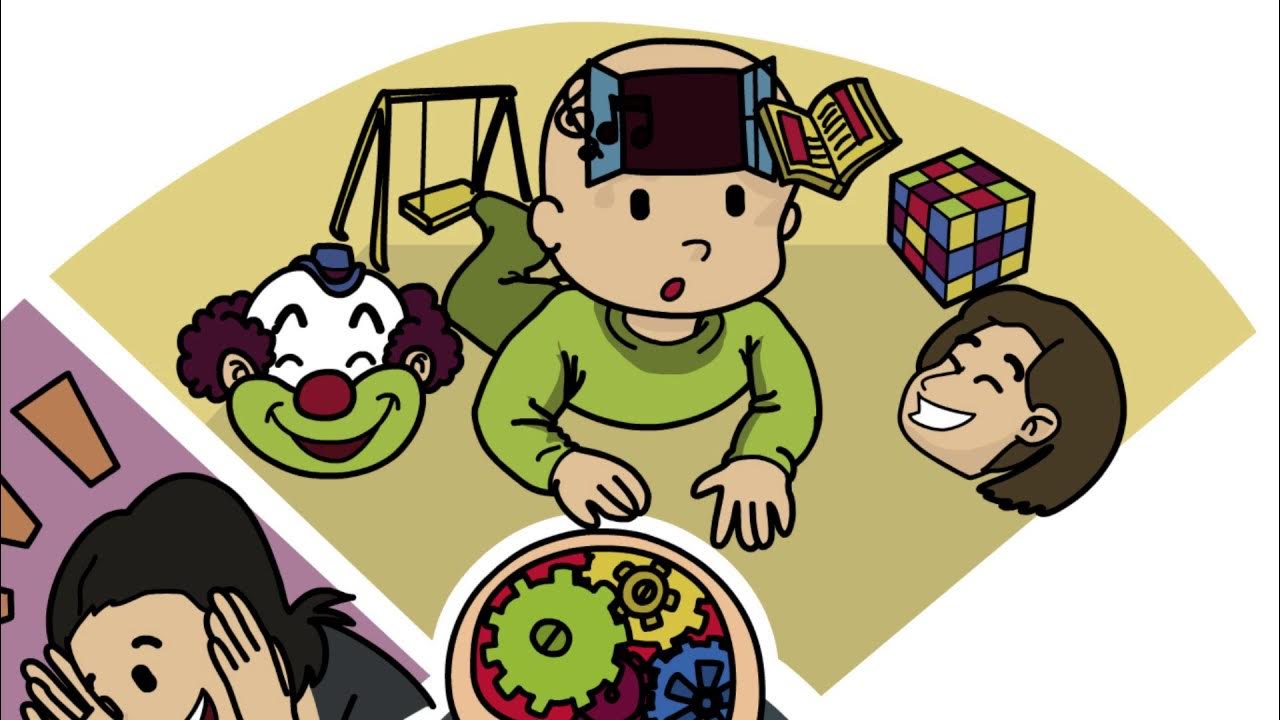The Power of Parent Involvement in Early Childhood Education (5 Minutes)
Summary
TLDRParental involvement in early childhood education is crucial for shaping a child's development and future success. Active participation from parents in activities like reading, educational games, and creating a stimulating home environment promotes cognitive, social, and emotional growth. Collaboration with educators, promoting health, and fostering a supportive atmosphere also contribute to positive outcomes. By engaging with their child's education and well-being, parents set the foundation for lifelong learning, resilience, and success. The key is for parents to find ways that align with their values, creating an environment that nurtures their child's development in all aspects.
Takeaways
- 😀 Parent involvement in early childhood education is crucial for shaping a child's cognitive, social, and emotional development.
- 😀 Active participation of parents, such as reading, storytelling, and educational games, boosts children's cognitive skills, language, and problem-solving abilities.
- 😀 Parent involvement fosters a love of learning and strengthens the parent-child bond, which is vital for emotional well-being.
- 😀 A supportive home environment with stimulating activities encourages curiosity, creativity, and continued learning outside of formal settings.
- 😀 Collaboration between parents and educators ensures that a child's academic and developmental needs are met effectively.
- 😀 Regular communication between parents and teachers helps track a child's progress and address any areas of concern promptly.
- 😀 Parent involvement extends beyond academics, contributing to children's physical well-being through healthy nutrition, exercise, and proper hygiene routines.
- 😀 Parent involvement can vary based on cultural, socioeconomic, and personal factors, but even small acts, like attending meetings or discussing school, can make a big difference.
- 😀 Establishing a rich home learning environment with educational materials and hands-on activities reinforces formal education.
- 😀 Parent involvement in early education sets the foundation for future academic and personal success, supporting lifelong learning and resilience.
Q & A
What role does parent involvement play in early childhood education?
-Parent involvement plays a crucial role in shaping a child's development, especially during the early years. Active participation from parents or guardians in a child's education helps improve cognitive, social, and emotional development, leading to positive long-term outcomes.
How does parent involvement benefit cognitive development?
-Parent involvement enhances cognitive development by providing children with valuable stimulation through activities such as reading, storytelling, and educational games. These interactions help children develop language, communication skills, problem-solving abilities, and a love of learning.
What are the social and emotional benefits of parent involvement?
-Parent involvement promotes a secure and supportive environment that encourages positive social interactions. It helps children develop key social skills such as empathy, cooperation, and conflict resolution, while also strengthening the parent-child bond, which is essential for emotional well-being and resilience.
In what ways does the home environment contribute to a child's development?
-A stimulating home environment reinforces the learning that happens in formal educational settings. Parents can create a print-rich environment, provide educational toys and materials, and engage in hands-on learning activities that encourage exploration, creativity, and curiosity.
Why is collaboration between parents and educators important?
-Collaboration between parents and educators creates a strong support system for the child’s learning. Regular communication allows for the sharing of insights, concerns, and progress updates, ensuring that the child’s needs are addressed effectively.
What role does parent involvement play in a child's health and well-being?
-Parent involvement in a child’s health and well-being contributes to their physical development. This includes promoting healthy nutrition, encouraging physical activity, and instilling good habits such as proper hygiene and a consistent sleep routine.
How does parent involvement vary among different families?
-Parent involvement can look different for each family, influenced by factors such as cultural, socioeconomic, and personal circumstances. The key is for parents to find meaningful ways to engage with their child's education that align with their family's values and needs.
What are some small acts of parent involvement that can make a big difference?
-Even small acts such as attending parent-teacher conferences, volunteering in the classroom, or having regular conversations about school can significantly impact a child's development and educational success.
What is the importance of creating a rich home learning environment?
-Creating a rich home learning environment helps reinforce the skills learned at school. It fosters curiosity, supports creativity, and encourages a child’s intellectual growth through activities that stimulate their imagination and problem-solving abilities.
How can parents support their child's educational goals outside of formal school settings?
-Parents can support educational goals by engaging in activities that extend learning beyond the classroom, such as educational games, interactive learning experiences, and discussions that align with the child’s academic progress and interests.
Outlines

هذا القسم متوفر فقط للمشتركين. يرجى الترقية للوصول إلى هذه الميزة.
قم بالترقية الآنMindmap

هذا القسم متوفر فقط للمشتركين. يرجى الترقية للوصول إلى هذه الميزة.
قم بالترقية الآنKeywords

هذا القسم متوفر فقط للمشتركين. يرجى الترقية للوصول إلى هذه الميزة.
قم بالترقية الآنHighlights

هذا القسم متوفر فقط للمشتركين. يرجى الترقية للوصول إلى هذه الميزة.
قم بالترقية الآنTranscripts

هذا القسم متوفر فقط للمشتركين. يرجى الترقية للوصول إلى هذه الميزة.
قم بالترقية الآنتصفح المزيد من مقاطع الفيديو ذات الصلة
5.0 / 5 (0 votes)






